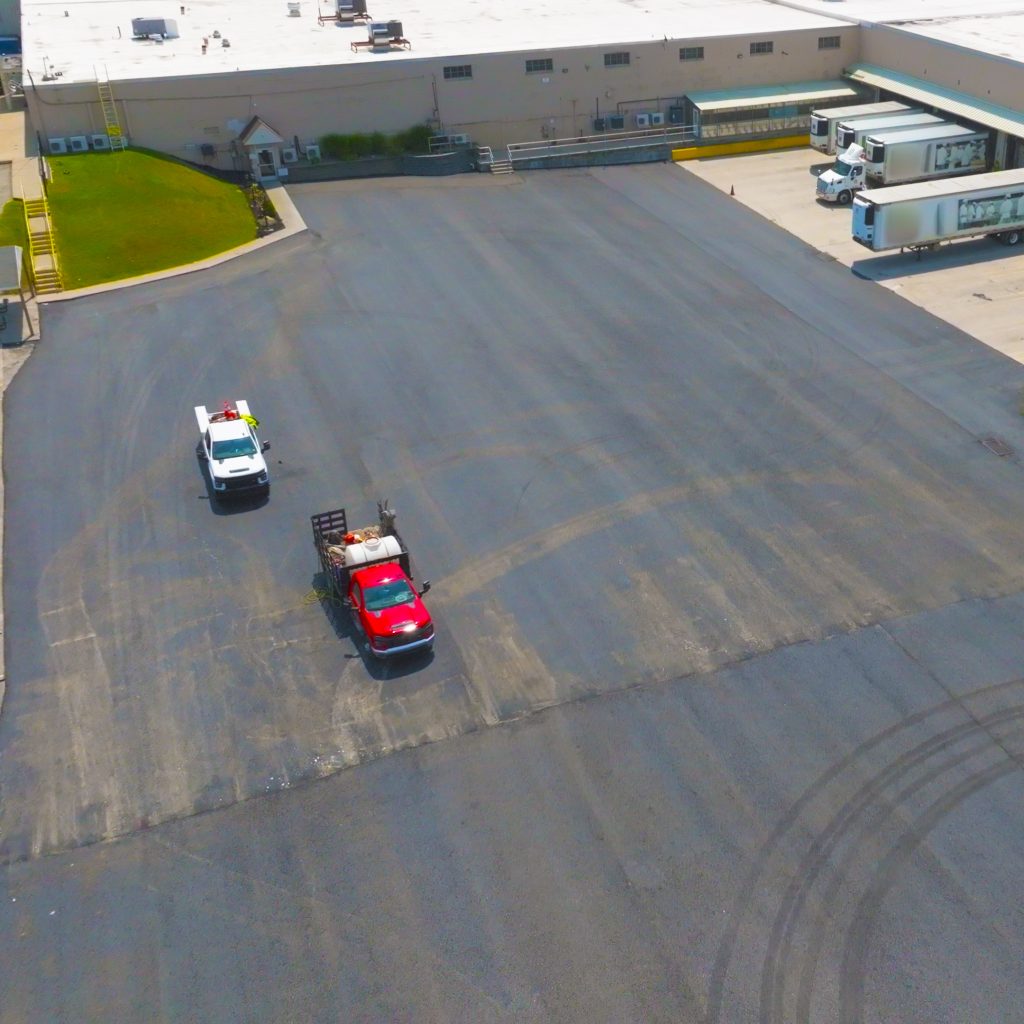When it comes to paving, asphalt is asphalt, right? Not exactly. While both residential and commercial paving jobs involve asphalt and equipment, that’s where the similarities end. The demands, materials, timelines, and even the permits can be drastically different.
The Pavement Group exclusively provides commercial paving services, catering to projects ranging in size and scope from smaller parking lots to large-scale commercial developments. So, let’s walk through how commercial paving really differs from residential work. If you’re managing either type of property, understanding the difference helps you plan smarter, save money, and avoid major headaches.
Scope and Size Make a Big Difference
One of the biggest differences lies in the scale of the job. Residential paving is usually limited to single-family driveways or small community streets. These projects are more straightforward and take less time.
On the other hand, commercial paving covers:
- Parking lots
- Multi-lane access roads
- Business parks
- Shopping centers
- Apartment complexes
- Industrial zones
These require more equipment, labor, planning, and coordination. They also need to handle much higher traffic volumes, especially from delivery trucks or heavy machinery.
Materials Used and Asphalt Mixes
Residential paving jobs typically use basic hot mix asphalt, suitable for light vehicles like sedans and small SUVs. These mixes are easy to install and cure faster.
Commercial projects demand stronger materials, like:
- Polymer-modified asphalt
- High-performance base layers
- Thicker sub-base materials
- Reinforced edging
At The Pavement Group, we use the right asphalt composition based on the load requirements of each property. A commercial trucking depot in Pittsburgh? That’s a totally different build than a suburban driveway in Cranberry Township.
Timeframe and Project Planning
Homeowners usually want their driveways paved in a day or two. It’s quick and doesn’t require a long lead time. Residential jobs often have more flexibility and fewer moving parts.
Commercial projects? Not so much.
With commercial paving, we plan around:
- Business hours and customer access
- Coordination with property managers
- Phased work to minimize downtime
- Multi-day or multi-week scheduling
- Local permit and code compliance
A strip mall in Philadelphia can’t afford to close for a week. We plan smart and pave in stages so they stay open.
Equipment and Crew Requirements
Residential paving might involve a truck, a roller, and a crew of three or four. It’s fast, efficient, and focused on smaller square footage.
Commercial paving requires:
- Graders, skid steers, and dump trucks
- Multiple compactors and rollers
- Laser grading for precision leveling
- Crews of 8 to 20+ people
- Site safety personnel and flaggers
It’s a completely different operation that demands experience and efficiency.
Drainage and Grading Are More Complex
Proper drainage matters everywhere, but it becomes even more critical in commercial settings. A few puddles on a driveway are an annoyance. Standing water in a commercial lot? That leads to liability issues, lawsuits, and failed inspections.
We use laser-guided equipment and engineered grading to make sure commercial surfaces drain correctly, stay safe, and meet code.
Regulations and Permits
You don’t usually need a permit to repave your home driveway. But when it comes to commercial lots, expect paperwork.
Common permit and code factors:
- ADA compliance
- Stormwater management
- Line striping and fire lane markings
- Accessible parking guidelines
- Township or municipal approvals
Our team helps clients across Pennsylvania, Ohio, and New Jersey handle permits from start to finish.
Long-Term Maintenance and ROI
Homeowners focus on aesthetics and short-term durability. Businesses have different priorities: ROI, longevity, and reduced liability.
At The Pavement Group, we create custom pavement maintenance plans for each commercial property we serve. We help facility managers track repair cycles, plan for overlays, and extend the life of their investments.
Cost Structure and Estimates
Residential pricing is often flat-rate or based on square footage. Commercial jobs involve more factors like soil testing, traffic control, multiple layers of asphalt, and extended timelines.
You get what you pay for, and commercial clients want long-term value over quick fixes.
Let The Pavement Group create the perfect paving solution for you.
Whether you’re paving a small driveway or a 100,000-square-foot shopping center lot, The Pavement Group brings decades of experience and local expertise to every project. We tailor our approach to fit your goals, your property, and your budget. From site planning to final striping, we’ve got your back, no matter the size. Contact us today.
Frequently Asked Questions
1. What is the difference between commercial and residential paving?
Commercial paving handles large areas and heavy traffic while residential paving is for smaller, lighter-use areas. The materials and equipment differ. Commercial projects require stricter planning and compliance.
2. Do commercial paving projects use different materials?
Yes. Commercial asphalt is thicker and reinforced for heavy loads. Residential paving uses basic hot mix asphalt suited for passenger vehicles.
3. Why does commercial paving take longer to complete?
Commercial sites are larger and require more complex planning. They often include phased work to avoid disrupting business. Permits and inspections also extend the timeline.
4. Are permits required for commercial paving projects?
Yes. Most towns and cities require permits for commercial work. These include drainage plans, ADA compliance, and fire lane markings.
5. Is drainage more important for commercial projects?
Absolutely. Poor drainage leads to lawsuits and surface damage. Commercial projects must meet specific slope and water runoff standards.
6. Can residential paving crews handle commercial jobs?
Usually not. Commercial work needs more equipment, manpower, and experience. It also involves meeting local codes and regulations.
7. What is ADA compliance in commercial paving?
It ensures parking lots have accessible routes and designated parking spots. It’s a federal requirement for public properties. Failing to comply can result in fines.
8. How much does commercial paving cost compared to residential?
Commercial paving is more expensive due to size, materials, and labor. However, it offers longer life and better ROI. Pricing is customized for each project.
9. What kind of maintenance does a commercial lot need?
Routine maintenance includes crack sealing, sealcoating, and resurfacing. These help extend the life of the asphalt. Regular inspections catch damage early.
10. What are the key factors to consider when selecting a commercial paving contractor?
Prioritize quality workmanship, timely project completion, and a strong commitment to safety. Choose a contractor with experience in managing the complexities of commercial paving projects.


